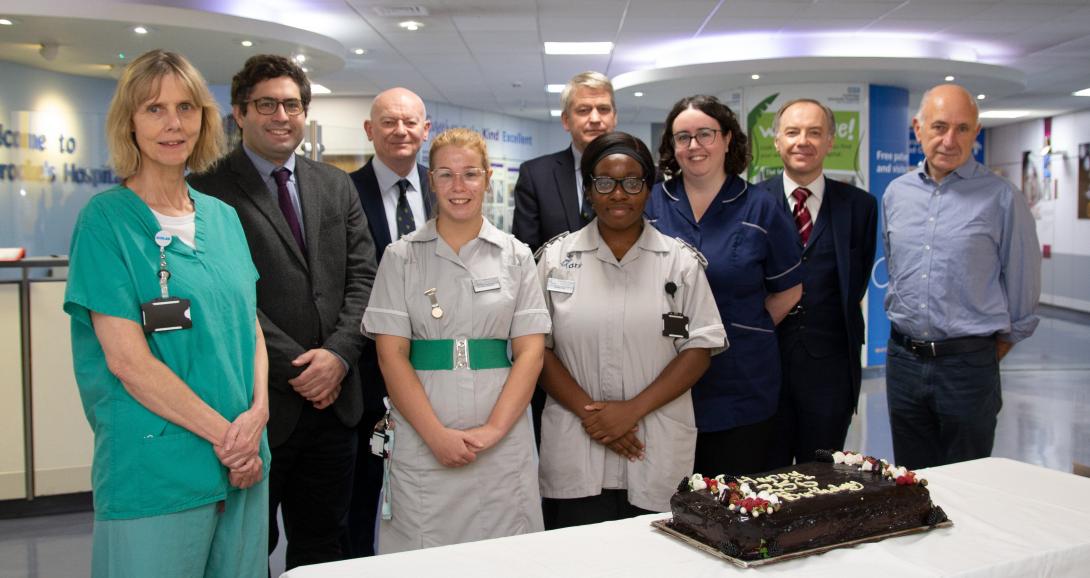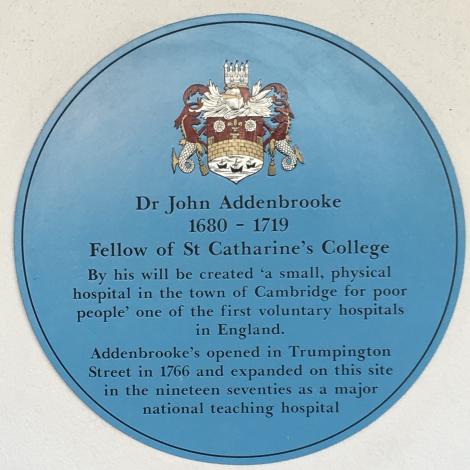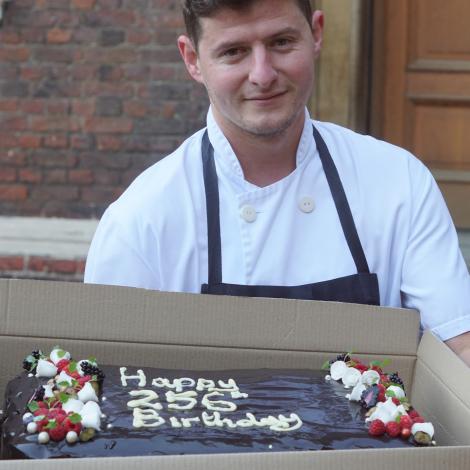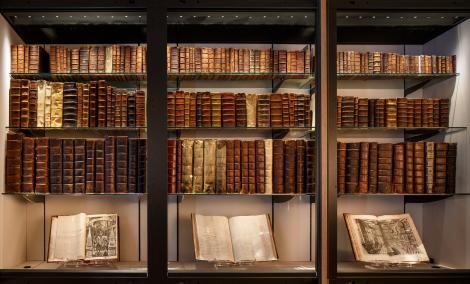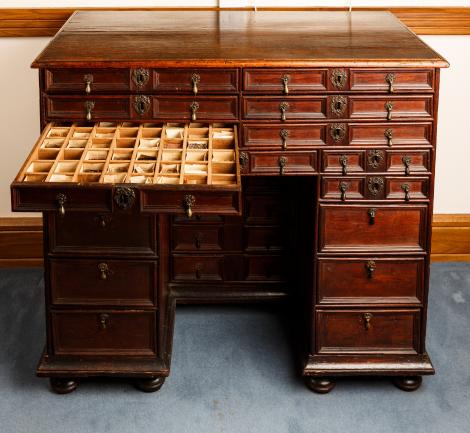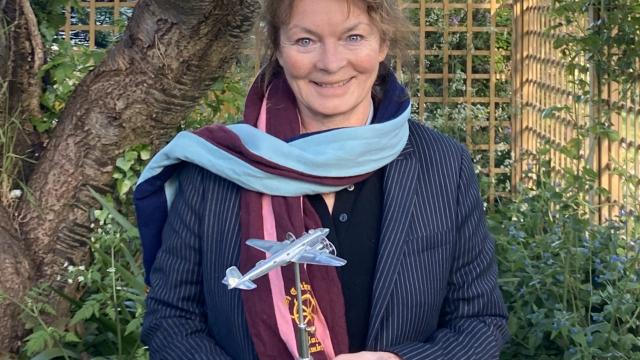
To mark the 256th anniversary of the founding of Addenbrooke’s Hospital by the Master and Fellows of St Catharine’s, a group of the College’s leading medics had the pleasure of delivering a birthday cake this morning. The chocolate mirror cake was baked and decorated by Dave Benton, one of the College’s talented chefs, as a special treat for hospital staff to enjoy.
St Catharine’s is rightly proud of its history of educating exceptional doctors. Among the many physicians who have graduated from the College is John Addenbrooke, who spent a third of his short life of 39 years as a Scholar, Fellow, Lecturer and Bursar here.
On his death on 7 June 1719 Addenbrooke left a legacy of £4,500 in his will to build a “hospital for poor people” and stipulated that the hospital should admit those of any parish or county. The Master and Fellows of St Catharine’s, as Trustees of his will, honoured his wishes and used his legacy to found the hospital in Cambridge that still bears his name.
Addenbrooke’s Hospital first opened its doors on 13 October 1766, one of the earliest voluntary hospitals in the country, comprising 20 beds, with a staff of three physicians, three surgeons and one matron. The College is very proud of this benefaction that anticipated the founding of the NHS by over 250 years, providing healthcare free at the point of service. Today it is part of the Cambridge University Hospitals NHS Foundation Trust (CUH) and delivers regional and national specialist services.
Receiving the cake on behalf of the hospital this morning was Dr Mike More, Chair of CUH, and a group of staff spanning over 40 years of healthcare at the hospital: student nurse Ashley Obi, nursing apprentice Amy Brocklebank, and senior sister Debbie Marshall who has 42 years’ service at the Trust.
|
|
|
Meet our medical Fellows
St Catharine’s Fellows continue to support the development of Addenbrooke’s as a world-class teaching hospital and a regional centre of excellence for specialist services such as organ transplantation, neurosciences, paediatrics and genetics.
- Professor Anthony Davenport (1995) – Official Fellow and Direct Director of Studies in Preclinical Medicine and Pharmacology at St Catharine’s and Director of the Human Receptor Research group based at Addenbrooke’s Hospital
- Professor Stefan Marciniak (2011) – Official Fellow and Director of Studies in Medicine at St Catharine’s, Honorary Consultant Respiratory Physician at Addenbrooke’s and Royal Papworth Hospitals, and Director of the Cambridge MB/PhD programme
- Professor Michael Nicholson (2018) – Official Fellow at St Catharine’s and Honorary Consultant Surgeon at Addenbrooke’s Hospital
- Dr Nisha Nixon (2022) – Official Fellow at St Catharine’s and Academic Clinical Fellow in Ophthalmology
- Dr Jason Tarkin (2021) – Junior Research Fellow at St Catharine’s and Honorary Consultant Cardiologist
Addenbrooke’s mark on St Catharine’s today
- The College Chapel: Addenbrooke was buried here, and his tomb and its inscription can still be seen in the Ante Chapel.
- Armitage Room: Addenbrooke amassed a large collection of specimens, which he presented to St Catharine’s in a chest, which is now located in the Armitage Room and still contains a wide variety of plants from around the word that were used to extract medicines of the time, some labelled by Addenbrooke himself. He was particularly interested in materia medica (the forerunner of modern pharmacology) and he lectured on the subject from 1705.
- Ramsden Room: Addenbrooke also donated a number of his classical medical texts and more contemporary works to the College Library, which are on display in the Ramsden Room.
|
|
|
This historical connection is a source of inspiration for many St Catharine’s students and alumni. One of our recent graduates from the University’s MB/PhD programme Souradip Mookerjee (2013, Medical Sciences) said:
“While the College’s central location was certainly a factor, I also applied to St Catharine’s because of its historical links with medicine… It was a proud moment in my daily routine when I passed the plaque displayed at the hospital, which bears the names of John Addenbrooke and St Catharine’s. Alongside our very well-known alumni, it is important to remember the jobbing doctors who have dedicated themselves to improving the lives of patients every day, including those on the frontlines during the pandemic. This more recent legacy is equally inspiring for me!”
Rhiannon Osborne (2016, Medical Sciences) added:
“For me, medicine is very much a social justice issue, so it was fascinating to learn that Addenbrooke specified that the charitable hospital founded in his memory should serve the needs of the poor, recognising that everyone deserves access to medical treatment. I am particularly grateful to have received the John Addenbrooke scholarship from the College, which I have used to fund a range of activism work focusing on health equity and access to medicines.”
